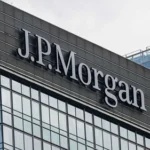For those who know little to nothing about it yet, see, IDBI Bank actually is a scheduled commercial bank that is doing impressively well. And the ownership is in the hands of the government as well as LIC. We’ll talk about more stuff like this, such as IDBI Bank Net Worth, CEO, and Head Office. Here we go then.

| Bank name | IDBI Bank Limited |
| Establishment year | 1964 |
| Head Office | Mumbai |
| CEO name | Rakesh Sharma (MD & CEO) |
| Net worth / Market cap | Around ₹1.05 lakh crore (06 Nov 2025) |
| Total revenue (2024) | ₹30,370 crore |
A Quick Overview of IDBI Bank
Well, just a little bit of history here, see, IDBI was initially set up in 1964 as the Industrial Development Bank of India, primarily to cater to long-term industrial growth. And then, of course, it transformed into a regular commercial bank. In January 2019, the RBI changed the status of IDBI Bank to a private sector bank after LIG took a majority stake. But the thing is, after the change in management, both LIC and the Government of India continue to be the main promoters of the bank. And yes, just like so many banks out there, IDBI Bank’s main head office is in Mumbai too.
Net Worth / Market Valuation
Normally, banks don’t release a “net worth” figure as common companies do. So in that very case, well, yes, an improved measure would be market capitalization. IDBI Bank’s market cap was approximately ₹1.05 lakh crore as of 6th Nov 2025, as per the data from the National Stock Exchange and various other financial trackers.
Latest Performance and Updates
Talking about the very recent stuff, you’ll be impressed by the fact that in Q2 FY26, IDBI Bank had a net profit that was almost double year-on-year at about ₹3,627 crore. The bank’s robust performance was mainly due to higher other income and a one-time gain resulting from the sale of the NSDL IPO stake. And yes, as of September 30, 2025, deposits exceeded ₹3 lakh crore, the bank’s gross NPAs were on a declining trend, and its capital adequacy ratio had gone up to around 25% by March 2025, which is indicative of a healthier and more stable balance sheet.


